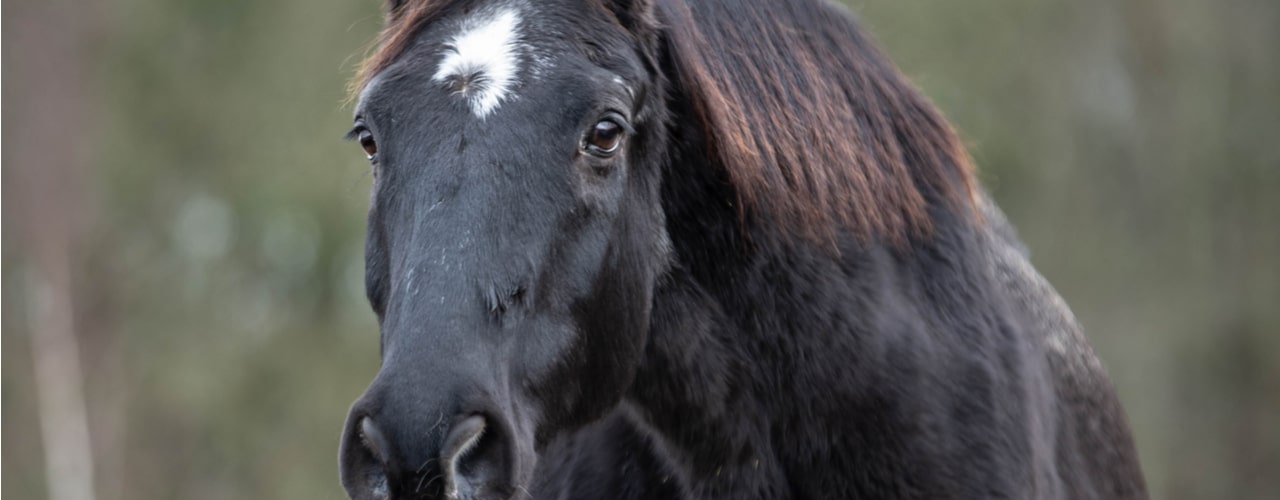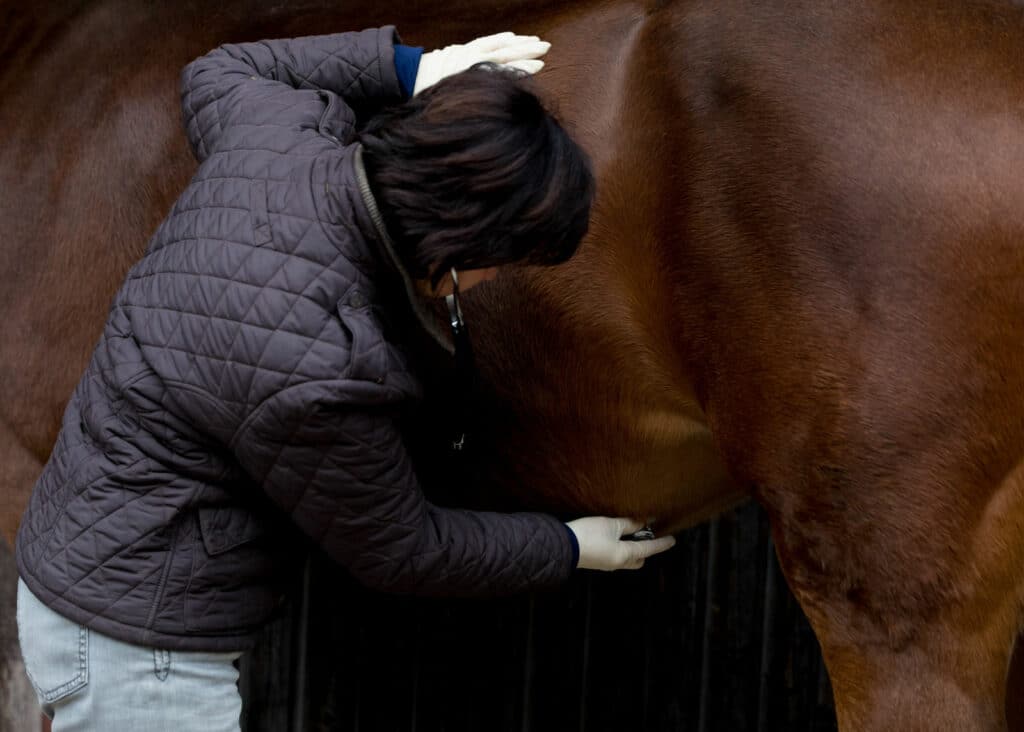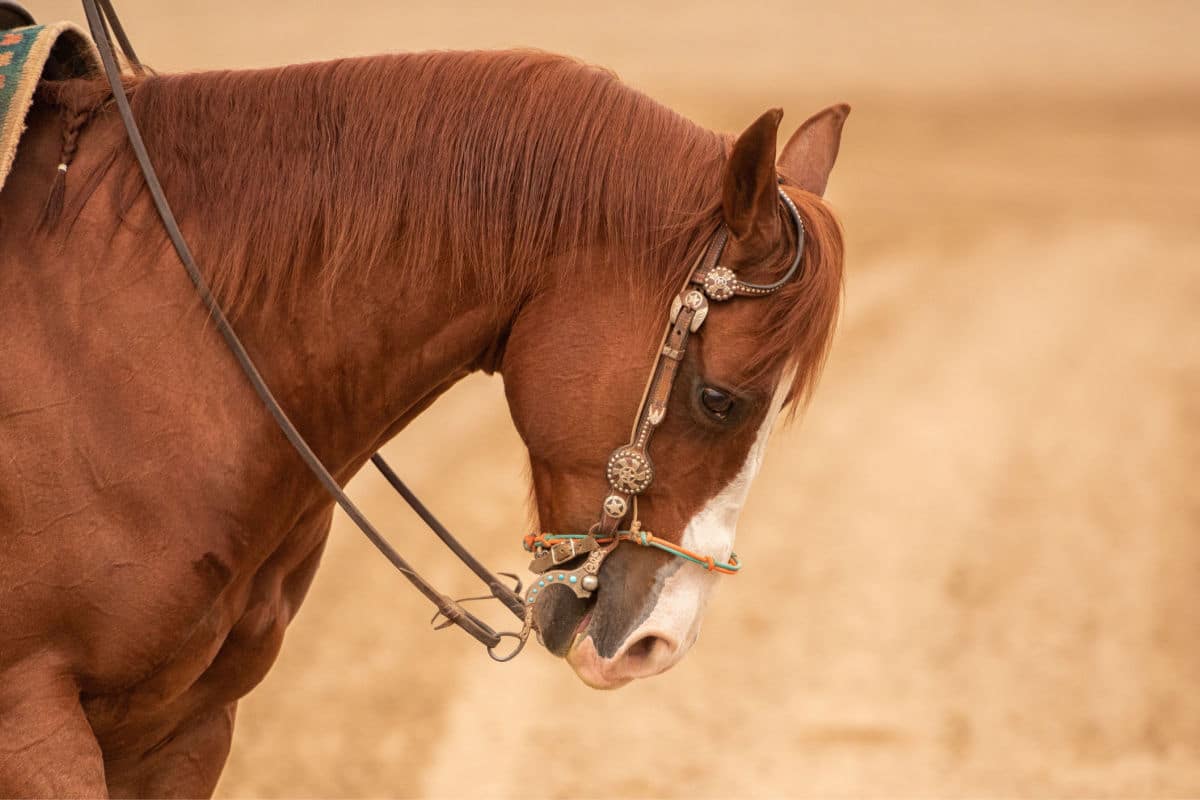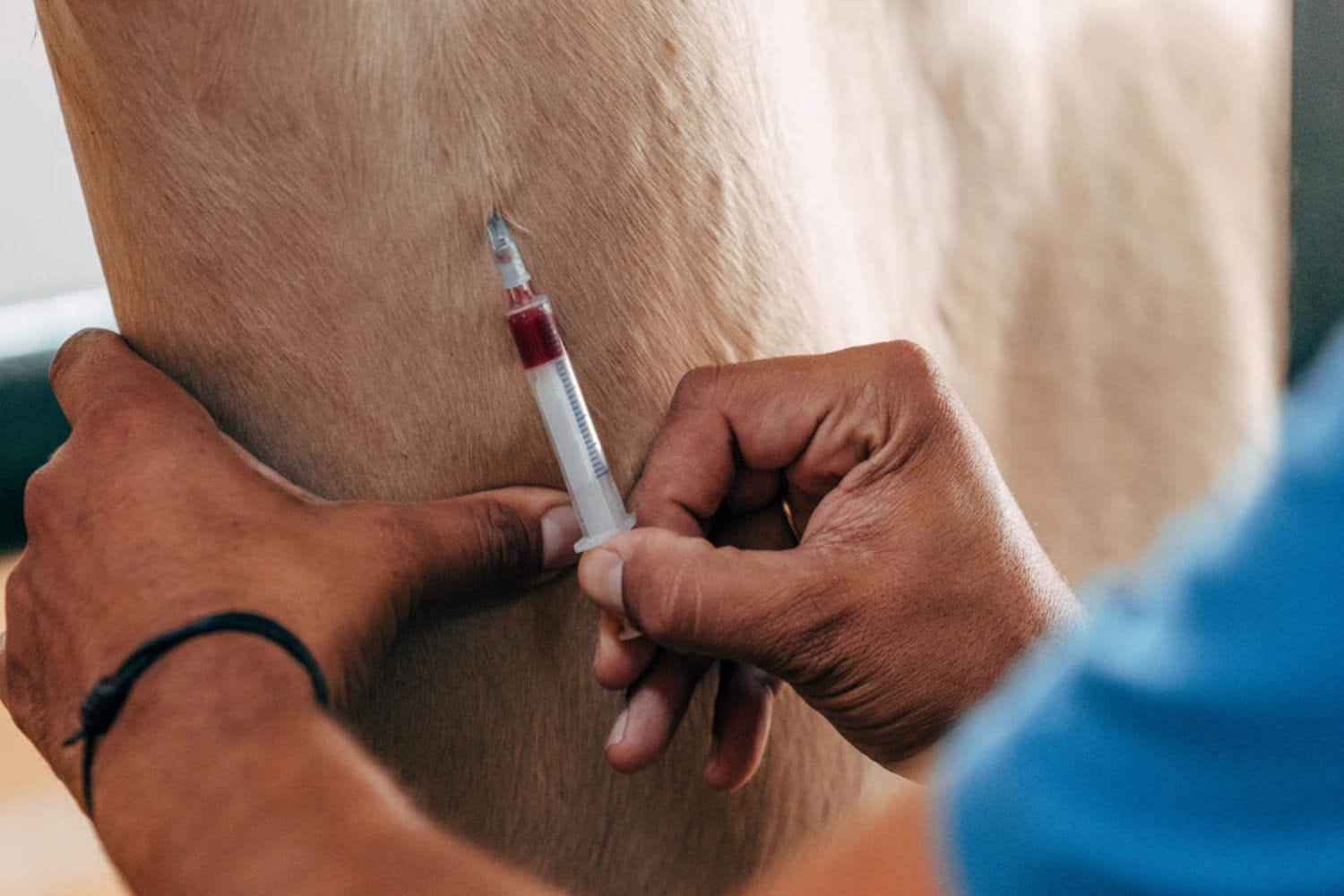If you have been around horses long enough, you have seen it—a horse with an abnormally long coat who walks like a lame duck and looks like they cannot get enough nutrients into their body. The disease that the horse suffers from is called Pituitary Pars Intermedia Dysfunction (PPID), more commonly known as Equine Cushing’s Disease.
This occurs in horses when the pituitary gland at the base of the brain produces hormones in excess and sends those hormones into the bloodstream of the horse, affecting its entire body.
Perhaps the most impacted part of the horse when it comes to Cushing’s disease is their gi tract health. Many horses with Cushing’s disease have abnormal metabolic functions, electrolyte balance, glucose, and fat metabolism, which can lead to greater problems like colic, diarrhea, and pneumonia. This is where the need for careful nutritional management and additional digestive support comes in.
Since successfully competing at the upper levels in any specialty requires a near perfect bill of health from every horse, a diagnosis of Cushing’s disease often means an end to a horse’s competitive career. This makes them the perfect candidate for teaching young riders the ins and outs of their specialty or competing at the lower levels with green riders. Managing a horse with PPID well can help to maintain their usefulness and quality of life well into retirement.
Though a horse with Cushing’s diease will never be cured completely, their condition can be managed. Here’s what you need to know about recognizing and managing Equine Cushing’s Disease in horses…
Equine Cushing’s Disease Symptoms
You can have hormone tests done by your veterinarian to diagnose PPID in your horse. However, these tests can show false negatives at the onset of the disease. As it progresses, these tests do become more accurate.
Before you run to your vet to start performing hormone tests on your horse, here are some of the tell-tale signs of Cushing’s disease to be on the lookout for:
- Increased coat length
- Inability to shed out in the summer
- Increased drinking
- Increased urination
- Increased sweating
- Muscle wasting
- Weight loss
- Frequent infections
- Insulin dysregulation
- Abnormal fat deposits
- Lethargy
- Laminitis
It usually takes some time for these symptoms to start manifesting in horses, and each case of Cushing’s disease is individual to every horse.
How to Manage Cushing’s Disease in Horses
A horse with Cushing’s disease will never be cured completely, but it can certainly be managed, thus enabling the horse to live a longer, healthier life.
Here are some of the PPID treatments your veterinarian may recommend:
- Dopamine agonists
- Serotonin antagonists
- Cortisol antagonists
- Analgesic medications
- Body clipping unshed winter coat
- Teeth floating
- Parasite control
- Routine vaccination
- Proper farrier care
- Modified diet
One treatment that is the most recommended is a modified diet. A change in diet can greatly benefit your horse with Cushing’s disease, especially since it impacts the gut. Modifying your horse’s diet along with the use of other natural treatments may help you see the greatest benefits to your horse. To determine the best combination of treatments, you can talk with your veterinarian to set up a plan, especially since every case of Cushing’s disease is unique.
Modifying the Diet of a Horse with Cushing’s Disease
All horses should be fed a healthy diet that benefits their whole body. Good nutrition is even more vital when a horse has Cushing’s disease. They need a higher protein content and adequate calories in their diet to maintain body weight and muscle mass. To help maintain weight and body mass, many horse owners will feed grain high in protein such as a senior horse feed. However, increasing grain intake can be detrimental to hindgi tract health, so finding ways to support nutrient uptake from a lower amount of a properly balanced, quality feed is important.
They also need a balance of quality vitamins and minerals to support their bodily functions. So, offering a PPID horse 24/7 access to a salt mineral block containing selenium, magnesium and chromium can help manage the symptoms of Cushing’s disease, along with feeding a vitamin supplement high in vitamins E and C.
However, sugars, starches, and carbohydrates should be avoided, especially if your horse has insulin dysregulation that often accompanies Cushing’s disease. So, feeding a diet low in non-structural carbohydrates (NSC) is very important. Many people will also soak their horse’s hay in water for a half hour to help remove some of the sugars and starches from the hay before feeding it.
Digestive Support for Horses with Cushing’s Disease
Feeding a daily digestive support supplement can also help maintain good digestive health despite the impacts of Cushing’s disease. When choosing an equine digestive support supplement, make sure you look for products high in these natural components:
- Polar lipids – Shown to assist with nutrient absorption, strength and integrity of the intestinal mucosa barrier, and normal brain function.
- Beta-glucan – Shown to assist with normalizing the rate at which food moves through the digestive tract, regulating the release of sugars from the digestive system, acting as a powerful stimulant to the immune system, and reducing LDL cholesterol levels in the blood.
- Nucleotides – Essential to cell growth and repair and help maintain a healthy intestinal tract while beta-glucan protects the hindgut.
- Mannan Oligosaccharide – Shown to support a balanced microflora, reduce the risk of infection and improve healthy immune system response.
- L-glutamine – Shown to assist in fueling and repairing muscle tissue, replenishing the natural supply of L-glutamine depleted during stress, maintaining tight junctions in the gut lining, preventing pathogen leakage and systemic infection.
- L-threonine – Shown to contribute to a smoothly functioning GI tract, assists metabolism and nutrient absorption, contributes to mucus production, heals wounds, and treats stress.
By feeding your horse a quality digestive supplement with these components as part of your feeding program, you can help them maintain weight, support nutrient absorption, and optimize gi tract health—enabling them to live a healthier and longer life in spite of Cushing’s disease.
While you will not see a horse with Cushing’s disease completely cured of the condiiton, you will see positive results by improving their diet and aiding their digestive health.
Sign up for the SUCCEED equine newsletter for more helpful articles like this.




